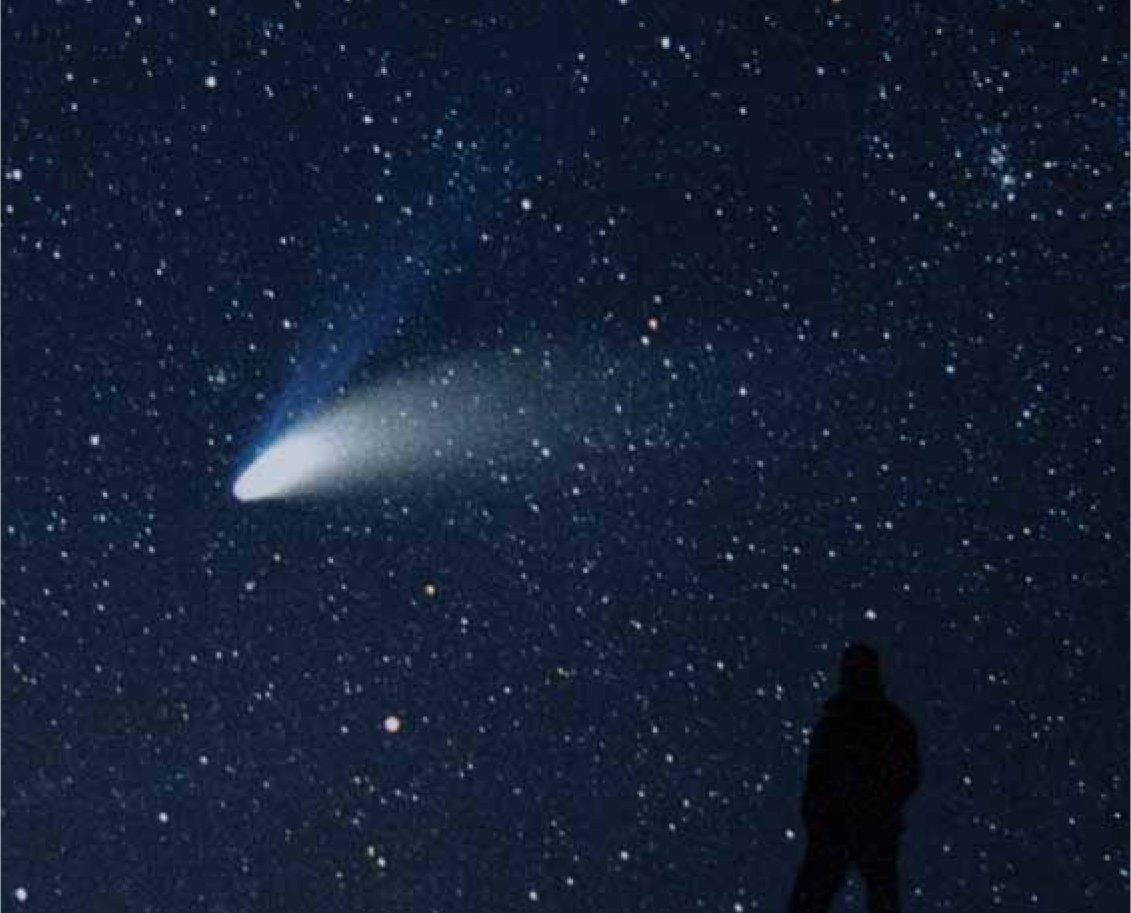403
CHAPTER
15

Comet Hale-Bopp, the great comet of 1997.
Vagabonds of the Solar System
LEARNING GOALS
By reading the sections of this chapter, you will learn
| 15–1 | What led to the discovery of the asteroids |
| 15–2 | Why the asteroids never formed into a planet |
| 15–3 | What asteroids look like |
| 15–4 | How an asteroid led to the demise of the dinosaurs |
| 15–5 | What meteorites tell us about the nature of asteroids |
| 15–6 | What meteorites may reveal about the origin of the solar system |
| 15–7 | What comets are and why they have tails |
| 15–8 | How comets originate from the outer solar system |
On the Tuesday night after Easter in the year 1066, a strange new star appeared in the European sky. Seemingly trailing fire, this “star” hung in the night sky for weeks. Some, including the English king Harold, may have taken it as an ill omen; others, such as Harold’s rival William, Duke of Normandy, may have regarded it as a sign of good fortune. Perhaps they were both right, because by the end of the year Harold was dead and William was installed on the English throne.
Neither man ever knew that he was actually seeing the trail of a city-sized ball of ice and dust, part of which evaporated as it rounded the Sun to produce a long tail. They were seeing a comet—remarkably, the same Comet Halley that last appeared in 1986 and will next be seen in 2061. Although we now understand that comets are natural phenomena rather than supernatural omens, they still have the power to awe and inspire us, as did Comet Hale-Bopp (shown here) in 1997.
While comets are made of ice and dust, asteroids are rocky bits of the solar nebula that never formed into a full-sized planet. Some asteroids break into fragments, as do some comets, and some of these fragments fall to Earth as meteorites. On extraordinarily rare occasions, an entire asteroid strikes Earth. Such an asteroid impact may have led to the extinction of the dinosaurs some 65 million years ago. Thus, these minor members of our solar system can have major consequences for our planet.
404